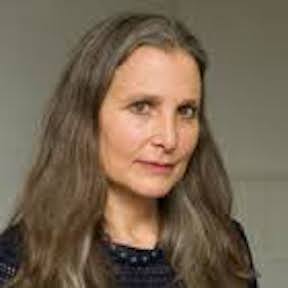The Rising Cost of the COVID Shutdown
COVID-19 has so far killed 3 million people. Including 566,000 Americans. That tells us something about the virility and lethality of the disease, but not nearly enough to form an opinion about the efficacy of the government shutdowns.
For one thing, although there is no doubt that certain measures (such as social distancing and wearing masks) slowed the spread of the disease, we cannot know how many lives were saved by the lockdown. Equally important, when we look at the number of deaths attributed to COVID, it tells us nothing about how many years those people could have been expected to live.
[Although putting a value on a given human life is impossible, economists have developed the technique of valuing “statistical lives” – that is, measuring how much it is worth to people to reduce their risk of mortality or morbidity. This approach has been used as a standard in US regulatory policy and in discussions of global health policy.
There is lengthy economic literature assessing the value of a statistical life – for example, in environmental and health regulation. Although no single number is universally accepted, ranges are often used. In environmental and health policy, for example, a statistical life is assumed to be worth $10 million. With a more conservative value of $7 million per life, the economic cost of premature deaths expected through the next year is estimated at $4.4 trillion.]
Sometimes, the solution to a problem can be worse than the problem itself. Which was clearly the case with some of the most extreme and senseless measures that were taken. I said that several times with regard to, for example, the shutting down of beaches in California and Florida. The response I got was always a look of utter disgust and a reminder that “Every life is precious.”
Every life may indeed be precious, but every life is not equally valuable in terms of the public at large. (There is a difference between the death of an 80-year-old and a 20-year-old or an infant. Younger deaths are more costly in many ways.) That is why public health professionals have always measured the cost of preventive measures in terms of years of life lost (YLL) due to premature mortality for a given population, not for individuals.
The reason is so obvious I can’t bring myself to explain it.
But now that, thanks to the availability of vaccines and the fact that tens of millions of Americans developed natural antibodies by having the illness, we are nearing herd immunity. (A term that was verboten prior to the election.) And the data on the cost of the shutdown, in terms of all sorts of things, including ancillary deaths, is starting to come in.
This is only a fraction of the total data and therefore only a fraction of the costs that will eventually be tallied. But here is a sampling of what is available now…
Extreme Poverty
More than 100 million people fell into extreme poverty in 2020. That is expected to rise to 150 million this year.
Why you haven’t heard of it: Virtually all of these people were in developing countries.
Hunger and Malnourishment
The rate of food insecurity from 2018 to mid-2020 more than doubled (14% to 32%) for households with children. (The Brookings Institute). The number of undernourished individuals in the world increased to more than 700 million, including about 70 million children, since the pandemic began. (WHO)
Why you haven’t heard of it: Virtually all of these people were in developing countries.
Other Lethal Diseases
Tens of millions of people in the US, Europe, and Canada could not get scheduled cancer operations. In the US, between April and October 2020, emergency visits related to mental health increased by 24% for 5- to 11-year-olds, and by 31% for 12- to 17-year-olds, compared to 2019. (CDC)
Drug Overdoses
Drug overdoses skyrocketed throughout the US, Canada, and Europe. The US, for example, had more than 81,000 overdose deaths in the 12 months ending in May 2020, the highest number ever recorded in a 12-month period. That increase has not abated. (CDC)
Mental Illness
Reported symptoms of anxiety and depression increased by 300% to 400% respectively. Of US adults surveyed, 10.7% had thoughts of suicide compared to 4.3% in 2018. (CDC)
Education
About 24 million children may drop out of school next year as a result of the lockdown’s economic impact.
And how about this: Based on evidence that students that are deprived of educational opportunities live shorter lives, the closing of primary schools during the lockdown eventually may be associated with an estimated 5.53 million potential years of life lost (YLL). (JAMA)
Economic Losses
There is no question: the cost of COVID-19 and the shutdown was huge. And it’s still growing.
The Congressional Budget Office projects that the cost to the US will be $7.6 trillion in lost output during the next decade.
Worldwide, the toll is considerably larger. According to the semi-annual Global Economic Prospects report released recently by the World Bank, the world economy shrank by 4.3% in 2020. That may not sound like much, but it’s huge. It’s an economic setback matched only by the Depression and the two world wars.
But this figure still understates the total cost because it measures the world economy’s fall from where it was before the pandemic, not from where it would have been had the virus not spread. Calculating the figure that way, with a conservative expectation of 2.5% GDP growth in 2020, you would have a total loss of $86 trillion!
 MarkFord
MarkFord

